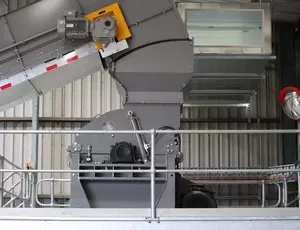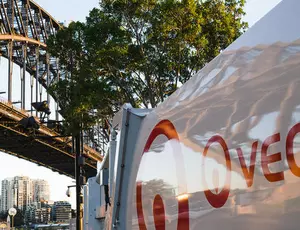Read a snapshot of some of the policy and regulatory updates relevant to the environment in the April to June 2025 quarter across Australia and New Zealand.
Only got 60 secs? Here’s a quick recap
- New Federal Environment Minister
- Renewed focus on productivity
- Carbon reduction and the waste sector
- NSW tackles batteries with new legislation
- NSW addresses the ‘waste crisis’
- Queensland and South Australia plan their waste strategies
New Federal Environment Minister
Subsequent to the Federal election in May 2025, Queensland Senator Murray Watt has been appointed as Federal Minister for the Environment and Water. Chris Bowen retains the Climate and Energy portfolio. Labor’s election campaign issues relating to the environment and climate change included reaffirming commitment to Australia’s target of Net Zero emissions by 2050, maintaining the national 82% renewable electricity target for 2030, major investment in renewable infrastructure and cheaper home battery storage systems. Minister Watt is expected to re-consider previous proposed reforms to the Environment Protection and Biodiversity Conservation Act, which included plans for a new independent federal environment protection agency.
Veolia’s observations
Veolia congratulates Ministers Watt and Bowen for their appointment to these important portfolios. Veolia is investing heavily in Australia’s sustainable future, with our 2024-2027 ‘GreenUp’ strategy particularly targeted towards significantly increasing investment in Australia’s circular economy. With the right policies in place - including a harmonised higher landfill levy across the states, product stewardship, support for renewable energy, adoption of energy from waste (EfW) and streamlined and timely approvals processes - Veolia believes Australia can achieve its waste and climate targets and see the sustainable impacts of those investments amplified into the future.
Renewed focus on productivity
The Federal Government has announced a Productivity Summit to be held in August this year. A ‘roundtable’, chaired by Treasurer Jim Chalmers, will be held at Parliament House to help shape government policy and actions on economic growth and productivity. The summit will include leaders from the business, union and community sectors, with the agenda including tax reform, streamlined major project approvals, and building a skilled and adaptable workforce.
Veolia’s observations
The Productivity Summit provides an important platform to highlight how our sector can further contribute to Australia's economic growth and environmental sustainability. We're seeing a fundamental shift in how waste is perceived ― not as a burden, but as a valuable resource. This transformation is driving innovation, creating skilled jobs, and opening new markets for recovered material. By turning waste into valuable resources, the sector is already reducing the nation's reliance on raw materials while creating new revenue streams and business opportunities.
Carbon reduction and the waste sector
The Australian Carbon Credit Unit (ACCU) Scheme provides incentives for businesses to reduce carbon emissions from their activities. Participants can earn ACCUs for every tonne of carbon dioxide equivalent emissions stored or avoided by an approved project. Recently, the Emissions Reduction Assurance Committee consulted on a new method for landfill methane capture and reviewed the method on diverting waste from landfills to alternative treatment, to ensure these ACCU Scheme methods have ongoing integrity and consider evolving best practice.
Veolia’s observations
Veolia creates ACCUs from capturing methane at our landfills, and from landfill diversion and waste treatment activities. The ACCU Scheme has and continues to deliver meaningful methane abatement and real emission reductions from the waste sector. Any reforms to the ACCU Scheme methods need to strengthen integrity and continue to incentivise emissions reduction in the waste sector, otherwise abatement costs will result in higher gate fees, increase in costs to local government and households, and risk methane emissions going to the atmosphere. We believe the Australian Government should increase and widen incentives to help ensure the waste management sector can fully contribute to Australia’s carbon reduction targets.
NSW tackles batteries with the new legislation
The Product Lifecycle Responsibility Act has passed NSW Parliament, enabling the NSW Environment Protection Authority to increase producer accountability for products placed on the market. The first product to be addressed is lithium-ion batteries, due to fire risk from incorrect disposal. A Mandatory Battery Stewardship Scheme will be developed, which will require brand owners to fund collection, recovery and safe disposal, including increased battery drop-off options for householders. Whilst batteries are the initial products targeted, the Bill provides a framework for future regulation of other products that are hard to recycle or have significant environmental consequences at end-of-life, for example packaging, textiles or solar panels.
Veolia’s observations
Fires resulting from batteries that are put in the garbage bin pose an immediate and significant threat, with the waste industry estimating there are over 10,00 battery-related fires each year. Veolia welcomes the NSW Government’s proactive product stewardship legislation and the immediate focus on batteries. Product stewardship schemes shift the responsibility for the impacts of products to the industries placing those products on the market, by creating financial incentives to drive behaviour change and providing the necessary funding for improvements throughout the supply chain.
NSW addresses the 'waste crisis'
In light of the identified looming ‘waste crisis’ triggered by dwindling landfill capacity for Greater Sydney, the NSW Government has released the draft first chapter of the NSW Waste and Circular Infrastructure Plan, which aims to prevent Greater Sydney from running out of landfill capacity in 2030. Priorities in the draft Plan include streamlining planning processes to extend the lifespan of existing landfills, and considering energy-from-waste development. As NSW councils are required to implement collection of food organics from households by 2030, the draft Plan also aims to ensure there is sufficient infrastructure to support this initiative. Future chapters addressing regional and remote NSW will be released later in 2025. A Ministerial Advisory Committee, including representatives from local councils, the waste and resource recovery industry and the community, will be set up to assist in the implementation of the final Plan.
Veolia’s observations
Veolia welcomes NSW’s first plan for waste and circular economy infrastructure and the NSW government’s acknowledgement of the criticality of waste infrastructure. Whilst we support streamlined planning processes and rapid assessment, any new landfill capacity for waste from the Sydney region is a highly valuable asset for greater Sydney communities. Future expanded landfill capacity must therefore be carefully utilised in order to maximise its lifespan and provide contingency for unforeseen surges in demand, such as waste from natural disasters. As a strategy to address the identified landfill capacity shortfall, we also support enabling the development of Energy-from-Waste (EfW) facilities through appropriate frameworks and policies.
Queensland and South Australia plan their waste strategies
The Queensland Government has sought feedback on the draft new Queensland Waste Strategy 2025-2030: Less Landfill, More Recycling. The draft Strategy aims to implement practical measures to boost recycling and reduce the environmental impacts of waste, without adding additional costs to business and households. Queensland will also review their waste disposal levy in 2025-2026, including assessing its effectiveness and determining the potential for increased inter-state waste transport to Queensland if NSW increases its waste levy.
Green Industries South Australia has released the draft Accelerating SA’s transition to a circular economy: South Australia Waste Strategy 2025-2030, which will include focus on food waste, single-use plastics, regulatory waste reforms, education and behaviour change, market development and remanufacturing. Consultation closes 23 July 2025.
Veolia’s observations
Veolia welcomes the draft new Queensland Waste Strategy 2025-2030 and we support its primary objectives of reducing waste, increasing recycling and supporting jobs in a more circular economy. Similarly, we support the South Australian strategy’s drive for continued leadership in waste management, resource recovery and accelerated circular economy transition. With the right policy settings, circular economy initiatives can not only increase productivity and boost the economy, but also contribute to reducing the cost of living. We will continue to advocate for national harmonisation of regulation where possible, such as for landfill levies and extended producer responsibility schemes, including for packaging.





